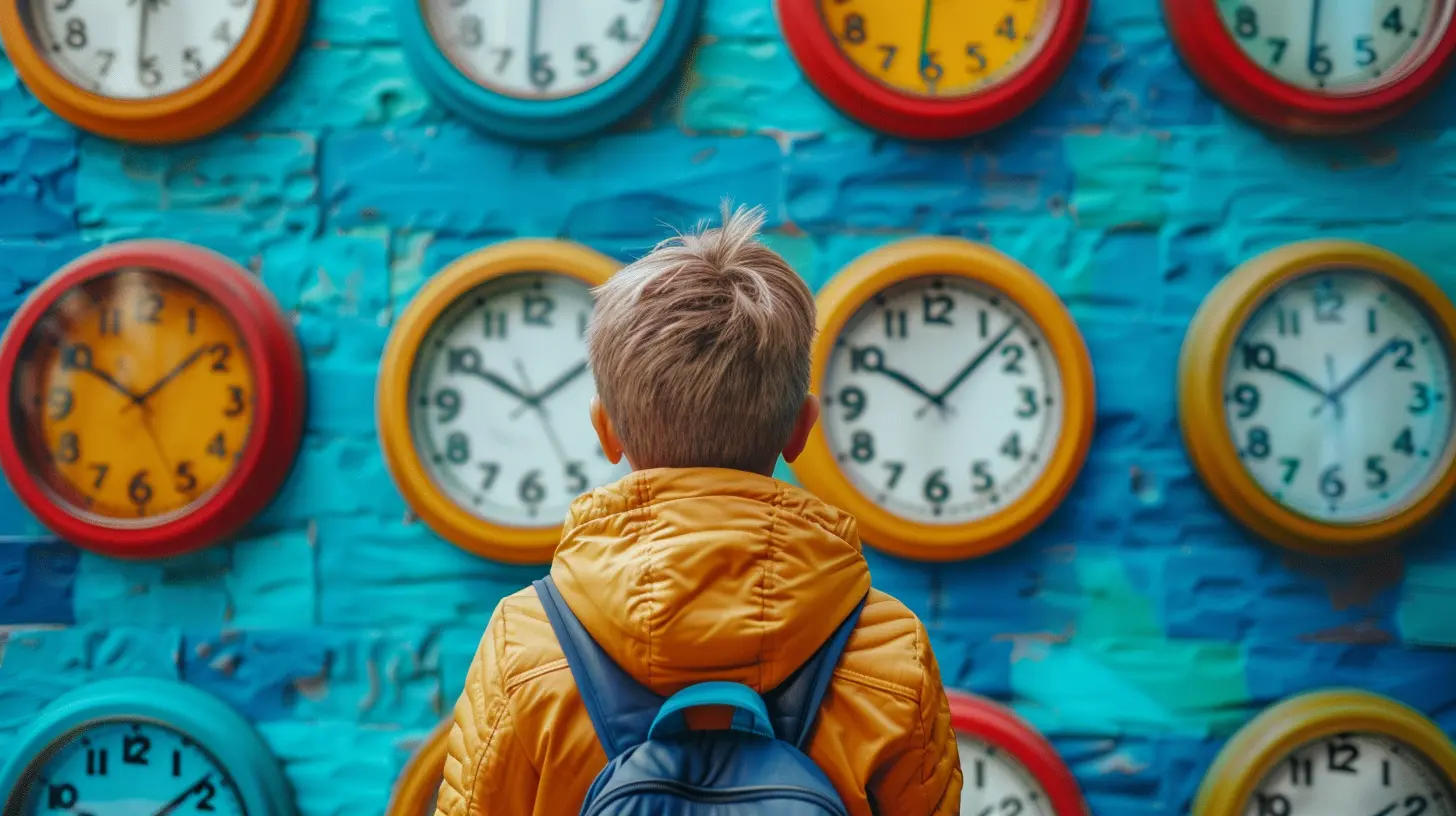How to Avoid Over-Scheduling After-School Hours
7 May 2025
Kids today are busier than ever. Between school, homework, sports, music lessons, and playdates, their schedules fill up fast. While having activities is great, over-scheduling can leave kids exhausted, stressed, and missing out on much-needed downtime.
As parents, we want the best for our children. But in the rush to keep them engaged and help them succeed, we sometimes forget the importance of balance. So, how do you avoid cramming their after-school hours with too many commitments? Let’s break it down. 
The Problem With Over-Scheduling
At first glance, filling your child’s schedule with activities seems beneficial. They’re learning new skills, socializing, and staying active. But when their calendar is packed from the time the school bell rings until bedtime, it can do more harm than good.Signs Your Child Is Over-Scheduled
Not sure if your child is taking on too much? Here are some red flags:- Constant Fatigue – If your child seems exhausted all the time, it could be a sign they’re doing too much.
- Increased Anxiety or Stress – Too many commitments can cause unnecessary pressure.
- Drop in Academic Performance – If grades are slipping, it might be a lack of time for studying and resting.
- Lack of Free Play – Kids need unstructured time to be creative and unwind.
- Mood Swings or Irritability – A packed schedule can leave little room for mental and emotional balance.
If any of these signs look familiar, it might be time to rethink your child’s after-school routine. 
The Importance of Downtime
Children need downtime just as much as they need structured activities. In fact, unstructured time is essential for their development.- Boosts Creativity – Free time allows kids to use their imagination without restrictions.
- Reduces Stress – Downtime gives the brain a break, leading to better mental health.
- Encourages Independence – When kids aren’t constantly directed, they learn to entertain themselves.
- Supports Family Bonding – A lighter schedule creates more opportunities for family time.
Think of it this way: Just like adults need a break from work, kids need a break from structured activities. A little boredom can actually be a good thing! 
How to Create a Balanced After-School Schedule
So, how do you structure after-school hours without overloading your child? Here are some practical tips.1. Prioritize What Matters Most
Not every activity is of equal importance. Sit down as a family and decide which ones truly benefit your child. Ask:- Does my child enjoy this activity?
- Does it align with their interests and talents?
- Are they feeling overwhelmed or pressured to continue?
Help them focus on a few key activities rather than saying yes to everything.
2. Set Limits on Extracurricular Activities
A good rule of thumb? Limit after-school activities to one or two per season. This prevents burnout and ensures they have time for schoolwork, rest, and free play.Think about what fits naturally into your weekly routine without feeling overwhelming. An overstretched schedule benefits no one.
3. Schedule Downtime Like an Activity
Yes, you read that right—schedule downtime! Just as you plan soccer practice or piano lessons, plan time where nothing is scheduled. This could be:- An hour after school for free play
- A quiet evening at home
- A weekend with no plans
Give kids the space to relax, unwind, and just be kids.
4. Keep an Eye on Their Energy Levels
Children won’t always tell you they’re overwhelmed. Keep an eye on their mood, sleeping patterns, and overall energy. If they seem drained, it may be time to cut back on activities.Encourage them to listen to their bodies. If they’re constantly exhausted or irritable, they might need more rest and less structure.
5. Encourage Open Communication
Talk to your child about their schedule. Ask them how they feel about their activities. Do they feel excited or overwhelmed? Do they wish they had more free time?Allow them to be part of the decision-making process. If they feel heard, they’ll be more open to creating a balanced schedule.
6. Keep One or Two Days Completely Free
Having at least one or two evenings with no commitments is a game-changer. These nights can be used for:- Family dinners
- Relaxing at home
- Playing outside
- Catching up on homework without rushing
A few unscheduled days allow for flexibility and prevent burnout.
7. Teach the Value of Saying No
Kids need to learn that they don’t have to do it all. Teach them that saying no to certain activities isn’t quitting—it’s prioritizing their well-being.Let them know that rest is just as important as participation. A balanced approach is the best approach.
8. Be a Role Model
Children often mirror their parents’ behavior. If they see you constantly rushing from one thing to another, they may assume that’s the norm.Show them the value of relaxation by balancing your own schedule. Take breaks, enjoy downtime, and prioritize family time. 
When to Step In and Make Changes
Sometimes, children won’t recognize when they’re overwhelmed, so it’s up to you to step in. If your child is constantly stressed, moody, or physically drained, it’s time to reassess their schedule.Sit down with them and discuss possible changes. Be supportive and remind them that reducing activities isn’t a failure—it’s a step towards better balance.
If necessary, adjust commitments gradually instead of all at once. Dropping one or two activities can make a huge difference in your child’s happiness and well-being.
The Final Word: Balance is Key
After-school activities should enrich a child’s life, not overwhelm them. While it’s great to encourage learning and socialization, too much structure can be just as harmful as too little.The key to a well-balanced childhood? A mix of structured activities, family time, and unstructured play.
By setting limits, making time for relaxation, and prioritizing mental well-being, you can help your child thrive—without the stress of an over-packed schedule.
### Remember: Sometimes, the best thing you can give your child isn’t another activity—it's the gift of time.
all images in this post were generated using AI tools
Category:
After School ActivitiesAuthor:

Tara Henson
Discussion
rate this article
4 comments
Emory Simon
Balancing after-school activities is essential for children's well-being. Prioritize quality family time and allow for unstructured play, ensuring they have opportunities to relax and develop creatively.
May 14, 2025 at 2:19 PM

Tara Henson
Thank you for your insightful comment! I completely agree—prioritizing family time and unstructured play is vital for children’s overall well-being and creativity.
Xylo Blevins
Great insights! It's fascinating how allowing more unstructured time can foster creativity and independence in kids. I'm eager to explore practical ways to implement this balance in our busy lives!
May 11, 2025 at 4:44 PM

Tara Henson
Thank you! I'm glad you found the insights valuable. Implementing unstructured time can indeed make a big difference. Consider starting with small blocks of free time each week and gradually adjust based on your family's needs.
Chelsea McInnes
Remember, kids aren’t race cars! You don’t have to rev them up for every activity. Sometimes the best plans involve pajamas and popcorn on the couch!
May 11, 2025 at 4:16 AM

Tara Henson
Absolutely! It’s all about balance—downtime is essential for kids to recharge and enjoy simple moments together.
Anisa Riley
Great tips! Balancing after-school activities can be tricky, but prioritizing family time and downtime is essential. Here’s to fostering creativity and relaxation in our kids’ lives!
May 7, 2025 at 2:49 AM

Tara Henson
Thank you! Prioritizing family time and relaxation is key to nurturing creativity and well-being in our kids.



